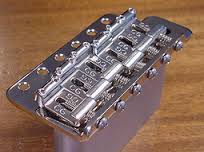My thrifty attitude about musical instruments extends to keyboards. I’ve been playing keys since I was 4 – I only started learning guitar at 16. And truth be told, I’m a better keyboard player than guitar player. But I enjoy both.
The year is 1983 and I live in New York State. I’m in a band, doing bad covers and starting to write our own music, and I’m the guitar player, but I really want a keyboard. I graduate high school and my parents buy me (for graduation) a keyboard. After a bit of searching, I settle on a used Fender Rhodes. This was the best possible decision, though I didn’t know it at the time. What I really wanted was a digital sampled piano, but they hadn’t been invented yet.
Eventually I end up play keys in my band. Our bass player has a MiniMoog and an Arp Pro Soloist, which he loans me. We make original music. I then moved off to college, our bass player quit the band, and the rest of the band decide to pack it in. That made sense, since I lived two hours away at that time.
So I graduate with a Bachelor of Science in Music Business. Once again, my parents reward my educational milestone with a thousand dollars, to be spent how I want. What I want is a DX 7, but those were more than double my budget, so what I bought was a Yamaha DX 27 and a Yamaha TX81Z. It was the 80s, after all. So now I had the Rhodes, the DX27, and the TX81Z. And no band.
I got a 4 track cassette and eventually an Alesis HR16 drum machine and Alesis MMT-8 sequencer. And proceeded to write about two songs a year with all my fancy gear. To be fair, I was married and my wife was slowly dying of Leukemia, so that’s a pretty good excuse.
After my wife passed away, I finished a degree I’d started in Elementary Education and I moved to Florida where the weather was good and the job market was considerably better. The Rhodes had outlived its usefulness to me, because I couldn’t lift it alone. At some point the DX 27 broke and I bought a Yamaha SY22. So I sold the Rhodes and moved. Once I got MainStage, my keyboarding world changed. I’d managed to break the SY22, and it didn’t sound as good as the sampled pianos in MainStage anyway, so away it went.
One day I decided I needed real piano action, so I bought a Casio CDP 100. It had a decent piano and Rhodes. About two years ago I bought a Arturia KeyLab 49 Essentials, because I wanted a keyboard with synth action and pitch bend/mod wheels. It came with some semi-useful sounds, too. After about ten years of gigs and playing, the bottom 8 keys on the Casio stopped working, and I wanted something better. I wanted an 88 key piano action keyboard with great sounds for not a lot of money. I bought a Yamaha MX88, which is basically a rompler. It’s got mostly great sounds, and some “OK” sounds.
So now it’s July 2022 and my keyboard rig is a Yamaha MX88 and a Arturia KeyLab 49 Essentials. I still have the Casio piano – I keep it as a backup keyboard.
What I find interesting is that, aside from the Rhodes, all of my keyboards have been utilitarian, and none of them are worth any money in the used market. I let the TX81Z go for like $30 in a time when people were throwing them away. Now it’s worth about $200, which is still nothing compared to the $10,000 you can get for a Roland Jupiter 8. The MX 88 is worth money now because it’s still in production. But 20 years from now it won’t be worth hardly anything.
I love synths, but to me they’re just tools, and I mostly just want all the standard synth sounds. And honestly, the software synths are so good these days, you don’t really need much more than a keyboard controller. BUT I wanted a synth that could function 100% without a computer. It’d be nice to do a gig and not bring a laptop, from time to time. And if my computer dies, I can gig with just the MX 88.
Side note – in the 80s, analog synthesis was ancient and aside from the day’s most expensive analog synths, most people moved on to the DX 7 and then to sampling after that. It’s funny that analog has come back so huge, and FM seems to have mostly been forgotten. Sampling is still with us, and I suspect always will be, from now on. Will the DX 7 become huge again in the 2030s? Who knows.
Side note 2 – People are paying crazy money for old analog synths that are expensive to fix and maintain and have extremely limited features. 99% of the population couldn’t tell a sampled MiniMoog from a real one in a track. I find it interesting.




